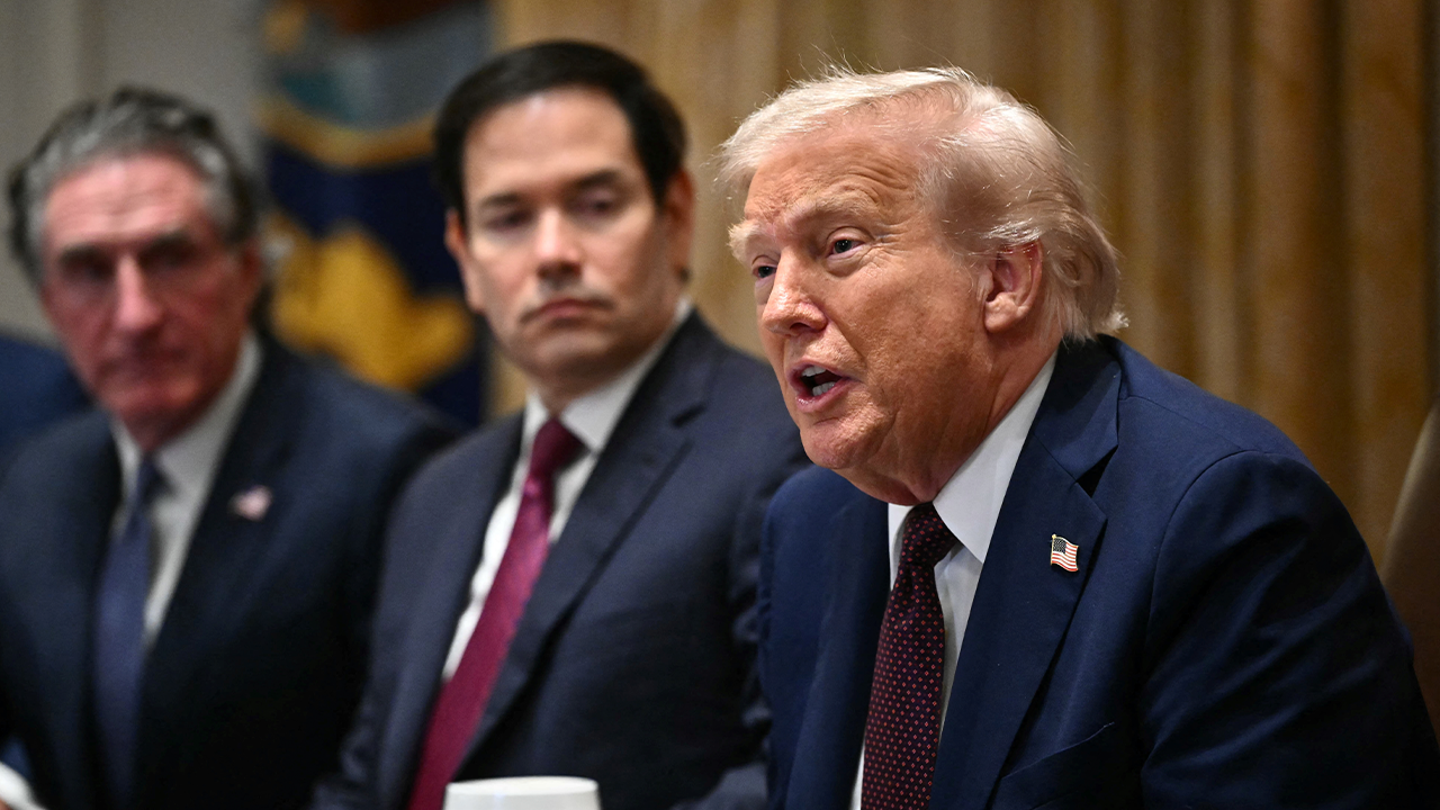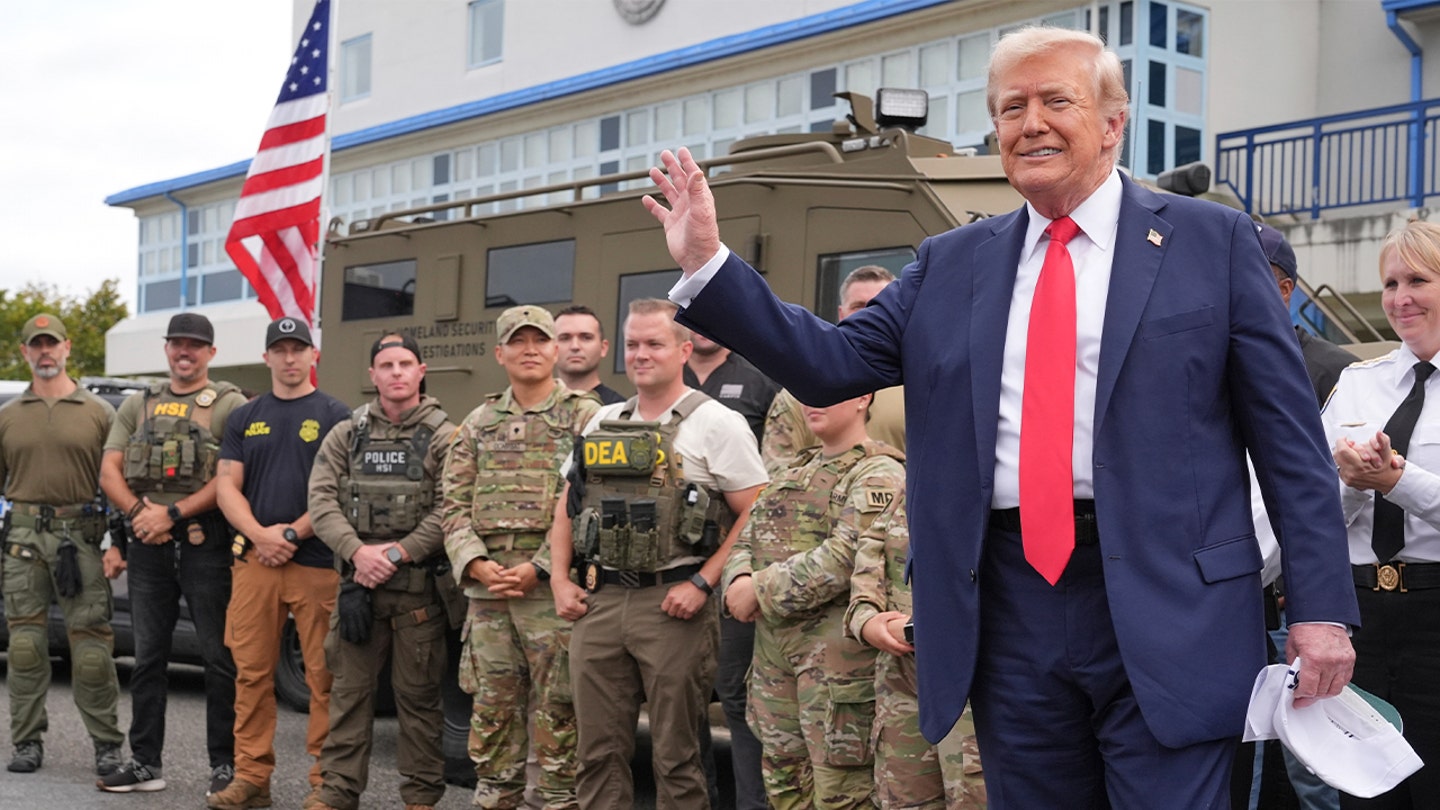
Trump insists liberal governor praised him in private convo, scoffs at 2028 hopes
Entities mentioned:
- Donald Trump: Power, Recognition, Self-preservation
- Wes Moore: Ambition, Self-respect, Duty
- Kamala Harris: Ambition, Power
Article Assessment:
Credibility Score: 65/100
Bias Rating: 65/100 (Lean Right)
Sentiment Score: 35/100
Authoritarianism Risk: 55/100 (Mixed/Neutral)
Bias Analysis:
The article leans right, primarily due to its reliance on Trump's statements and Fox News sources. While it includes Moore's rebuttal, the framing gives more weight to Trump's version of events.
Key metric: Political Polarization
As a social scientist, I analyze that this article highlights the increasing political polarization in the United States. Trump's claims about Moore's alleged praise and Moore's subsequent denial exemplify the growing divide between political parties and their supporters. The dispute over what was said in a private conversation, now made public, demonstrates how personal interactions between political figures can become contentious issues in the media. This polarization is further exacerbated by Trump's threats to revoke funding and deploy the National Guard in Baltimore, which could be seen as an attempt to assert federal power over state governance. The article also touches on themes of political ambition and public image management, as both Trump and Moore appear to be positioning themselves for future political roles.

Trump battles John Bolton, Chris Christie and threatens to pull funds from Wes Moore’s Maryland
Entities mentioned:
- Donald Trump: Revenge, Power, Self-preservation
- John Bolton: Self-preservation, Professional pride, Influence
- Chris Christie: Ambition, Revenge, Recognition
- Wes Moore: Duty, Pride, Justice
- Letitia James: Justice, Ambition, Righteousness
Article Assessment:
Credibility Score: 65/100
Bias Rating: 55/100 (Center)
Sentiment Score: 30/100
Authoritarianism Risk: 65/100 (Authoritarian Tendencies)
Bias Analysis:
The article presents multiple viewpoints and criticizes both Trump and his opponents, indicating an attempt at balance. However, there's a slight lean towards critiquing Trump's actions more heavily, though it also acknowledges some of his grievances as valid.
Key metric: Political Polarization Index
As a social scientist, I analyze that this article highlights the increasing political polarization in the United States, particularly centered around Donald Trump. The former president's confrontational approach towards both political opponents and allies who criticize him is likely to exacerbate existing divisions. His threats to withhold funding from Maryland over a personal dispute with its governor exemplify a concerning trend of using governmental power for personal vendettas. This behavior, if continued or escalated, could significantly impact public trust in institutions and the integrity of democratic processes. The article also touches on the cyclical nature of political retaliation, suggesting a potential long-term degradation of political norms and cooperation across party lines.

Bridge collapse aid becomes economic weapon in escalating Trump-Moore feud
Entities mentioned:
- Wes Moore: Duty, Justice, Self-preservation
- Donald Trump: Power, Control, Revenge
- Port of Baltimore: Professional pride, Security, Unity
- Federal Government: Control, Influence, Power
Article Assessment:
Credibility Score: 70/100
Bias Rating: 55/100 (Center)
Sentiment Score: 35/100
Authoritarianism Risk: 65/100 (Authoritarian Tendencies)
Bias Analysis:
The article presents viewpoints from both sides of the political divide, quoting both Trump and Moore's offices. However, there's slightly more space given to Moore's perspective, and the tone is somewhat more critical of Trump's statements.
Key metric: Economic Growth
As a social scientist, I analyze that this article highlights a complex interplay between federal and state politics, infrastructure development, and economic stability. The threat to withhold funding for the Francis Scott Key Bridge reconstruction represents a potential significant impact on Economic Growth. The Port of Baltimore's role in supporting 20,000 jobs, facilitating $7 billion in trade, and its importance in specific import sectors make it a crucial economic asset. Any delay in rebuilding the bridge could have far-reaching consequences for local and national supply chains, potentially stunting economic growth. The political feud between Trump and Moore adds a layer of uncertainty to the project, which could deter investments and slow economic recovery in the region. This situation demonstrates how political conflicts can directly affect infrastructure projects and, by extension, economic performance.

Fact check: Behind-the-scenes video disproves Trump’s claim that Gov. Moore called him ‘greatest president of my lifetime’
Entities mentioned:
- Donald Trump: Power, Recognition, Self-preservation
- Wes Moore: Duty, Professional pride, Self-respect
- Fox News: Influence, Professional pride, Loyalty
- Carter Elliott, IV: Duty, Loyalty, Professional pride
- Mike Johnson: Duty, Professional pride
Article Assessment:
Credibility Score: 85/100
Bias Rating: 45/100 (Center)
Sentiment Score: 35/100
Authoritarianism Risk: 20/100 (Strongly Democratic)
Bias Analysis:
The article presents a balanced view, using video evidence and quotes from both sides. While it does disprove Trump's claim, it does so with factual evidence rather than opinion, maintaining a neutral stance.
Key metric: Public Trust in Government
As a social scientist, I analyze that this article significantly impacts public trust in government by exposing a clear discrepancy between a high-profile political figure's claim and video evidence. The fact that former President Trump's recollection of his interaction with Governor Moore is demonstrably false raises questions about the reliability of political statements and the potential for deliberate misinformation. This incident may lead to increased skepticism among citizens regarding political rhetoric and could potentially erode trust in leadership. The article's presentation of video evidence as a fact-checking mechanism highlights the importance of media oversight in maintaining political accountability, which could have a positive effect on public trust in journalism but a negative effect on trust in political figures.

Trump’s ambition to take crime crackdown national will stoke tensions and legal showdowns
Entities mentioned:
- Donald Trump: Power, Control, Ambition
- Democratic Party: Righteousness, Justice, Self-preservation
- Hakeem Jeffries: Duty, Justice, Wariness
- Wes Moore: Duty, Justice, Ambition
- Rahm Emanuel: Professional pride, Wariness, Duty
- JB Pritzker: Duty, Self-preservation, Justice
- Kwame Raoul: Justice, Duty, Wariness
Article Assessment:
Credibility Score: 75/100
Bias Rating: 35/100 (Lean Left)
Sentiment Score: 30/100
Authoritarianism Risk: 65/100 (Authoritarian Tendencies)
Bias Analysis:
The article leans left in its framing, giving more space to Democratic voices and criticism of Trump's policies. While it includes some factual information, the language used often portrays Trump's actions in a negative light.
Key metric: Political Polarization Index
As a social scientist, I analyze that this article highlights a growing tension between federal and state powers, particularly concerning law enforcement and the use of military forces in domestic situations. Trump's approach to crime in major cities is presented as a potential overreach of presidential authority, which could exacerbate political divisions and challenge the balance of power between federal and state governments. The article suggests that Trump's actions may be more politically motivated than driven by actual crime statistics, potentially using the issue of public safety to appeal to his base and pressure Democratic-led cities. This situation is likely to increase political polarization, as it pits federal authority against state sovereignty, and Republican policies against Democratic governance in urban areas.

Trump's week shaped by crime agenda, potential guard deployment to Chicago
Entities mentioned:
- Donald Trump: Power, Control, Influence
- Pam Bondi: Duty, Justice, Professional pride
- Brandon Johnson: Self-preservation, Righteousness, Indignation
- J.B. Pritzker: Duty, Self-preservation, Wariness
- Wes Moore: Duty, Security, Cooperation
- Muriel Bowser: Duty, Security, Self-preservation
Article Assessment:
Credibility Score: 70/100
Bias Rating: 55/100 (Center)
Sentiment Score: 35/100
Authoritarianism Risk: 65/100 (Authoritarian Tendencies)
Bias Analysis:
The article presents multiple viewpoints, including Trump's statements and responses from Democratic leaders. While it leans slightly towards critiquing Trump's approach, it maintains a relatively balanced presentation of facts and perspectives.
Key metric: Crime Rate in Major Cities
As a social scientist, I analyze that this article highlights President Trump's focus on crime reduction in major U.S. cities, particularly Chicago and Washington D.C., through the potential deployment of National Guard troops and increased federal law enforcement presence. This approach reflects a centralized, federal-level intervention in local matters, which could impact crime rates but also raises concerns about federal overreach and political motivations. The President's rhetoric and actions suggest a belief that forceful intervention can quickly reduce crime, but this approach may overlook complex socio-economic factors contributing to urban crime. The resistance from local Democratic leaders indicates a political divide in approaches to public safety and federalism. This conflict could affect the implementation and effectiveness of crime reduction strategies, potentially impacting the key metric of crime rates in major cities.

Trump gets what he wants in DC crackdown as Democrats fumble response
Entities mentioned:
- Donald Trump: Power, Control, Influence
- Democratic Party: Justice, Unity, Self-preservation
- Chuck Schumer: Righteousness, Duty, Indignation
- Hakeem Jeffries: Righteousness, Duty, Indignation
- Jamie Raskin: Justice, Righteousness, Moral outrage
- Chuck Rocha: Professional pride, Influence, Unity
- Wes Moore: Professional pride, Duty, Justice
- Karoline Leavitt: Loyalty, Duty, Control
Article Assessment:
Credibility Score: 75/100
Bias Rating: 45/100 (Center)
Sentiment Score: 35/100
Authoritarianism Risk: 55/100 (Mixed/Neutral)
Bias Analysis:
The article presents multiple perspectives, including critiques of both Trump and Democrats. While it leans slightly critical of Trump's approach, it also highlights Democratic shortcomings, maintaining a relatively balanced view.
Key metric: Public Safety and Crime Rate
As a social scientist, I analyze that this article highlights the complex political dynamics surrounding crime and public safety in Washington D.C. Trump's aggressive approach to crime in the capital city exposes the Democrats' struggle to effectively counter his law-and-order rhetoric. The article suggests that Democrats are failing to address voters' immediate concerns about safety, instead focusing on criticizing Trump's authoritarian tendencies. This political maneuvering impacts public safety perceptions and potentially actual crime rates, as it may lead to short-term, politically motivated actions rather than sustainable, evidence-based policies. The article also points to a broader issue of partisan polarization hindering effective governance and problem-solving in addressing complex social issues like crime.